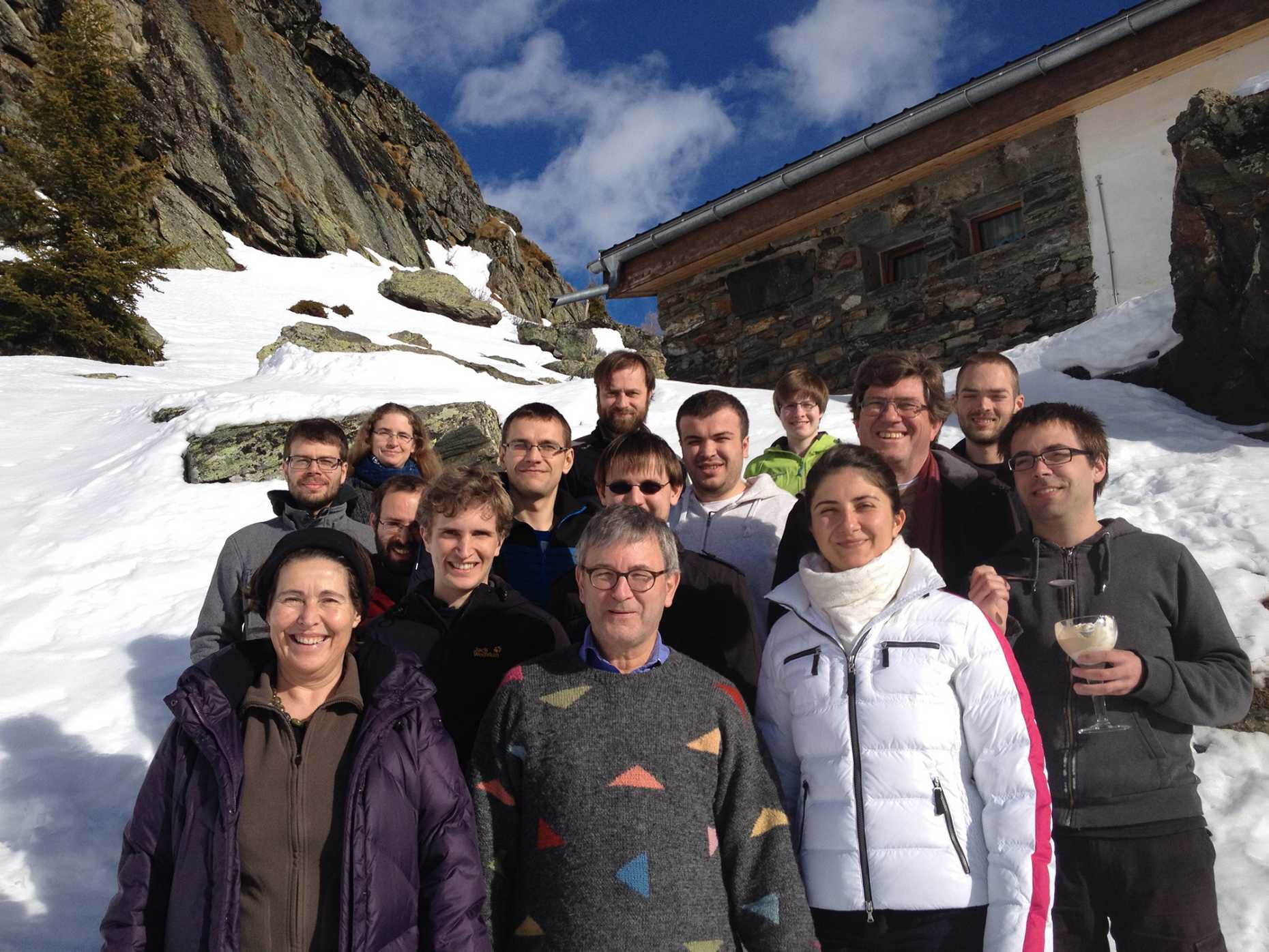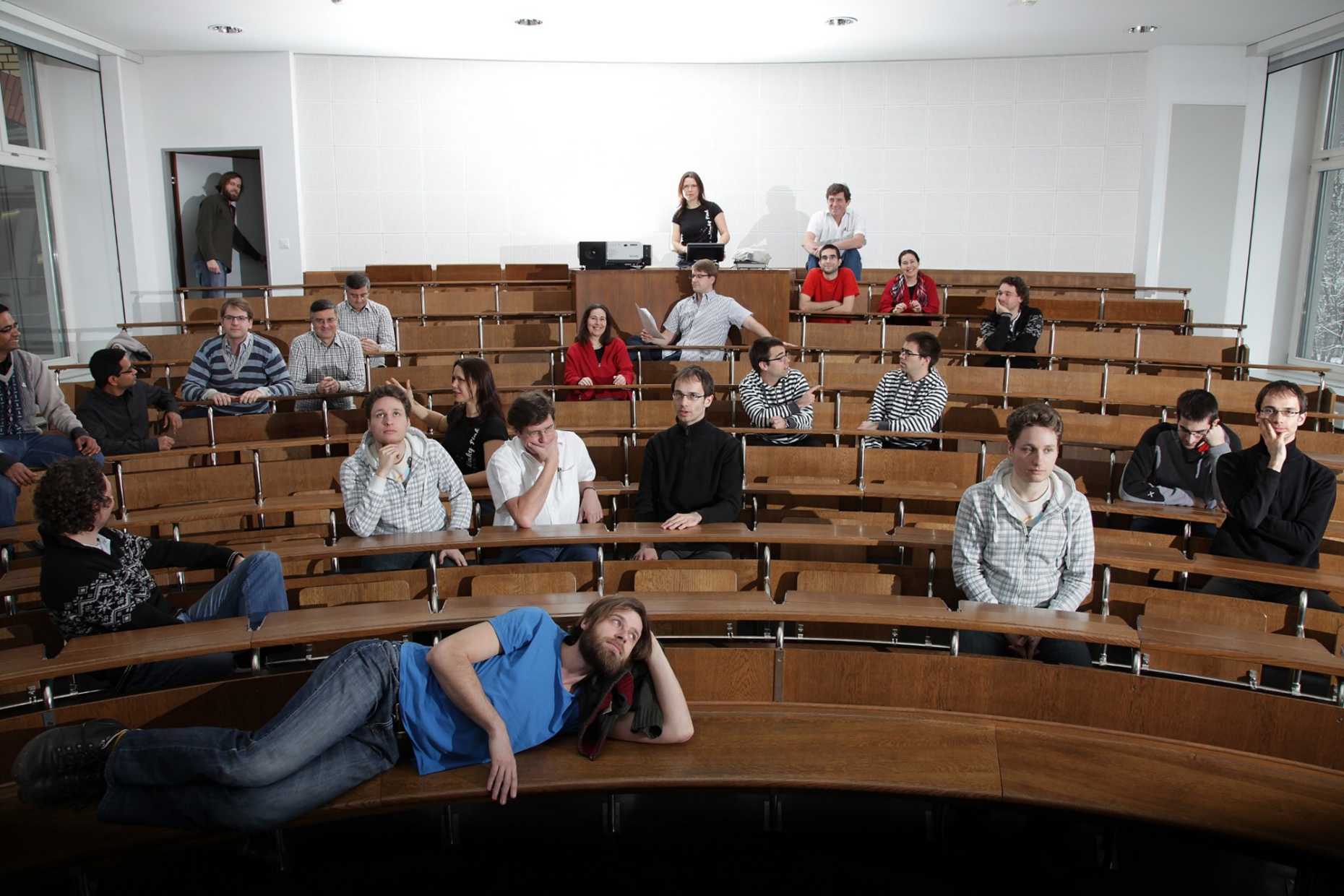The ETH nomad
16.06.2020 | Anna Ettlin
For 25 years, Marianna Berger held various administrative positions at ETH Zurich, in particular at D-INFK. Before her retirement at the end of June, she looks back on her varied career at the university.
When Marianna Berger retires at the end of June 2020, she will take many memories with her. She worked at ETH Zurich for 25 years, in a variety of administrative positions in numerous departments, sections and research groups. What began with a part-time position in Corporate Communications ends with a full-time job as administrative assistant for four professors at the Department of Computer Science. “I am an ETH nomad,” jokes Berger.
Her journey at ETH Zurich began in 1995. Berger was working as an independent acupressure therapist when she was asked by ETH Zurich to take over the editing of the university’s event calendar. Even before that, the then 39-year-old had already accepted individual commissions from ETH Zurich, such as temporary job cover and minute-taking. Berger, who had a commercial apprenticeship and a diploma in advertising support, was familiar with administrative work. “I accepted the position as a counterbalance to my therapeutic work,” she recalls.
"I would like to thank all my supervisors and the department for the great support."Marianna Berger
Until 2001, Berger remained with Corporate Communications, where she also managed events and helped create the “Who is who”. Here, she came into contact with the Department of Computer Science for the first time, organising exhibitions at the Orbit computer fair in Basel. But a few more years would pass before the ETH nomad found her way to D-INFK. During this time, Berger organised scientific seminars for Congressi Stefano Francini on Monte Verità in Ascona, and enjoyed frequent trips to Ticino. “That was a great time,” she says. “ETH even sponsored an Italian course in Italy for me.”
In 2004, Berger moved to the GESS department as administrative assistant to the Psychology and Behavioural Immunology professorship. The numerous job changes were not initiated by Berger herself: “I was approached by HR for many of my postings, including this one,” she says, “This was a very exciting area of research. At that time, they were taking MRI images to see what happens in the brain during sexual behaviour, among other things.”
From psychology to computer science
The professorship was terminated in 2007. Berger stayed on as an administrative assistant, but moved to the group of Professor Peter Widmayer, who was working in theoretical computer science. “That was an incredible shift in subject matter,” she laughs, “but at least I didn’t have far to move; both professorships were based in CAB.” Once at D-INFK, the ETH nomad decided to stay – for 13 years.

“The department has grown enormously during that time,” says Berger. In addition to Peter Widmayer’s group, she has been an administrative assistant to numerous other professorships over the years. Today, after Widmayer’s retirement, these are the groups of Olga Sorkine-Hornung, Stelian Coros and Christian Holz, as well as a temporary position with the group of Otmar Hilliges. “Administrative assistance at ETH is a very varied and interesting job,” says Berger. “Certain basic activities are similar for all professorships, for example employee and guest administration, reviewing expense and credit card statements and invoices, and budget control. Everything else is individual – and ranges from the organisation of conferences to the running of the group’s website and the administrative management of SNSF and EU research projects.”
Berger’s favourite task was organising conferences and retreats. “I had the pleasure of organising a retreat for the Widmayer group twice a year,” she recalls. “The guidelines were ‘as cheap as possible, as high up in the mountains as possible and as comfortable as possible’. I had a lot of freedom, which was great.” She also has particularly fond memories of her role in establishing new research groups, such as that of Christian Holz, who was appointed to ETH Zurich in 2019.
A strong team
“It takes good social skills and the will to assert yourself when you’re dealing with so many different people and their expectations,” admits Berger. Her therapeutic training and experience helped her in her work, for example when familiarising new colleagues. The team spirit among the administrative assistants at the Department of Computer Science was also a great support. “The solidarity in the department’s administration is very strong,” she says. “A big thank you to my colleagues for that.” Mutual support is particularly important for administrative staff. “We are part of a research group, but we are not researchers,” explains Berger. “Sometimes, you feel a bit isolated.”
After 25 years, 13 of them at the Department of Computer Science, the nomad ends her journey through ETH Zurich at the end of June. “Goodbyes are always a little sad,” says Berger. She has greatly appreciated her time at ETH Zurich. “ETH is a very reliable employer. You get good employment conditions and a lot of freedom to shape your own work processes,” she says. “Here, I would also like to thank all my supervisors, the Department of Computer Science and all the administrative departments for the great support I received.”
However, as much as she enjoyed her work, she is looking forward to a new phase in her life with more free time – and fewer credit card statements to process. “That was probably the least interesting part of my job,” she laughs.
Berger is not rushing her retirement. Initially, she wants to devote more time to her acupressure practice, which she had progressively reduced over her years at ETH Zurich. Apart from that, she is looking forward to spending time with her mother and enjoying her leisure. Meeting up with former colleagues from the department for coffee is also a must – as soon as the coronavirus crisis allows it. “It’s a strange time to retire,” she admits.
